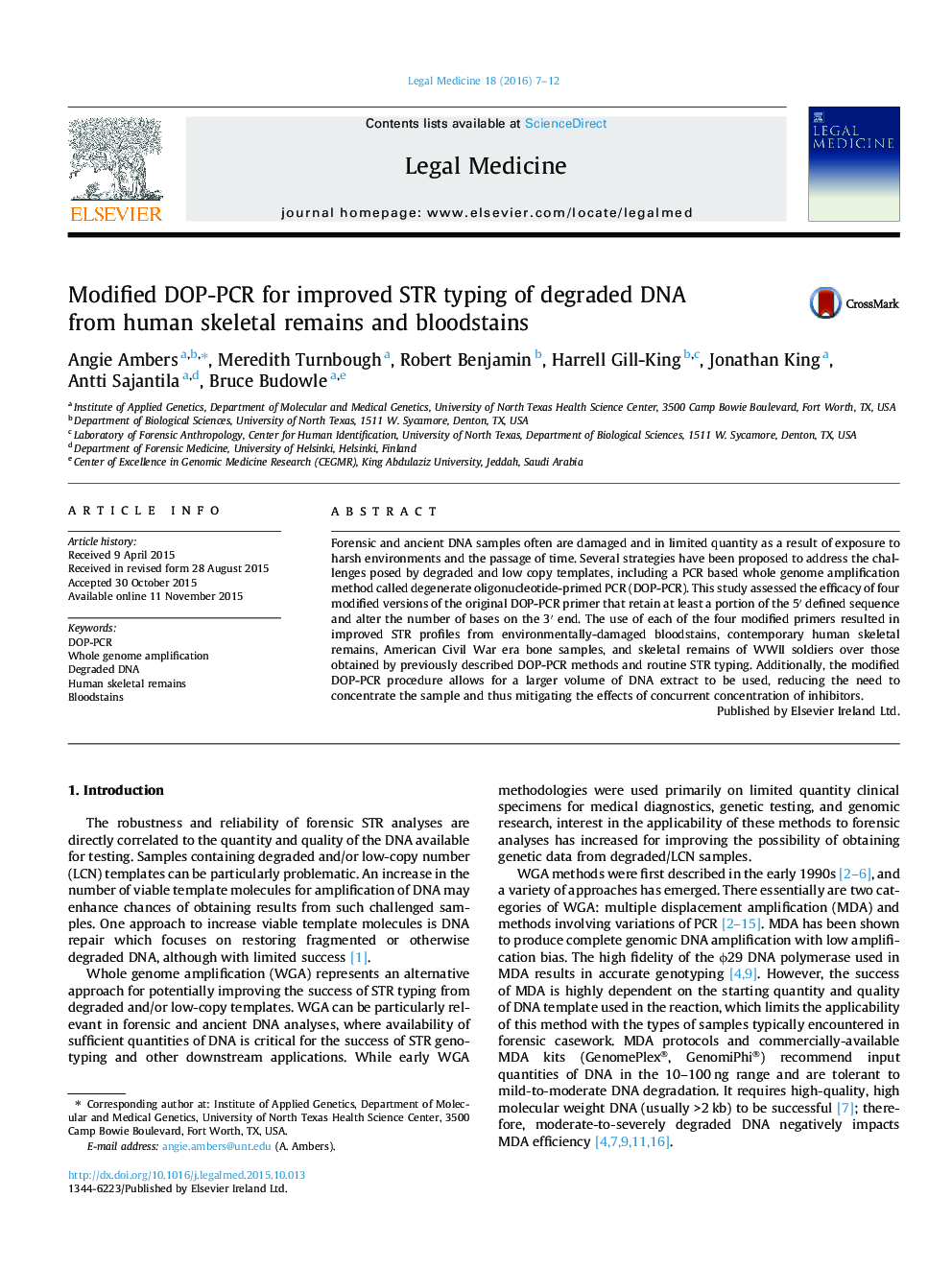| Article ID | Journal | Published Year | Pages | File Type |
|---|---|---|---|---|
| 6555379 | Legal Medicine | 2016 | 6 Pages |
Abstract
Forensic and ancient DNA samples often are damaged and in limited quantity as a result of exposure to harsh environments and the passage of time. Several strategies have been proposed to address the challenges posed by degraded and low copy templates, including a PCR based whole genome amplification method called degenerate oligonucleotide-primed PCR (DOP-PCR). This study assessed the efficacy of four modified versions of the original DOP-PCR primer that retain at least a portion of the 5â² defined sequence and alter the number of bases on the 3â² end. The use of each of the four modified primers resulted in improved STR profiles from environmentally-damaged bloodstains, contemporary human skeletal remains, American Civil War era bone samples, and skeletal remains of WWII soldiers over those obtained by previously described DOP-PCR methods and routine STR typing. Additionally, the modified DOP-PCR procedure allows for a larger volume of DNA extract to be used, reducing the need to concentrate the sample and thus mitigating the effects of concurrent concentration of inhibitors.
Related Topics
Physical Sciences and Engineering
Chemistry
Analytical Chemistry
Authors
Angie Ambers, Meredith Turnbough, Robert Benjamin, Harrell Gill-King, Jonathan King, Antti Sajantila, Bruce Budowle,
